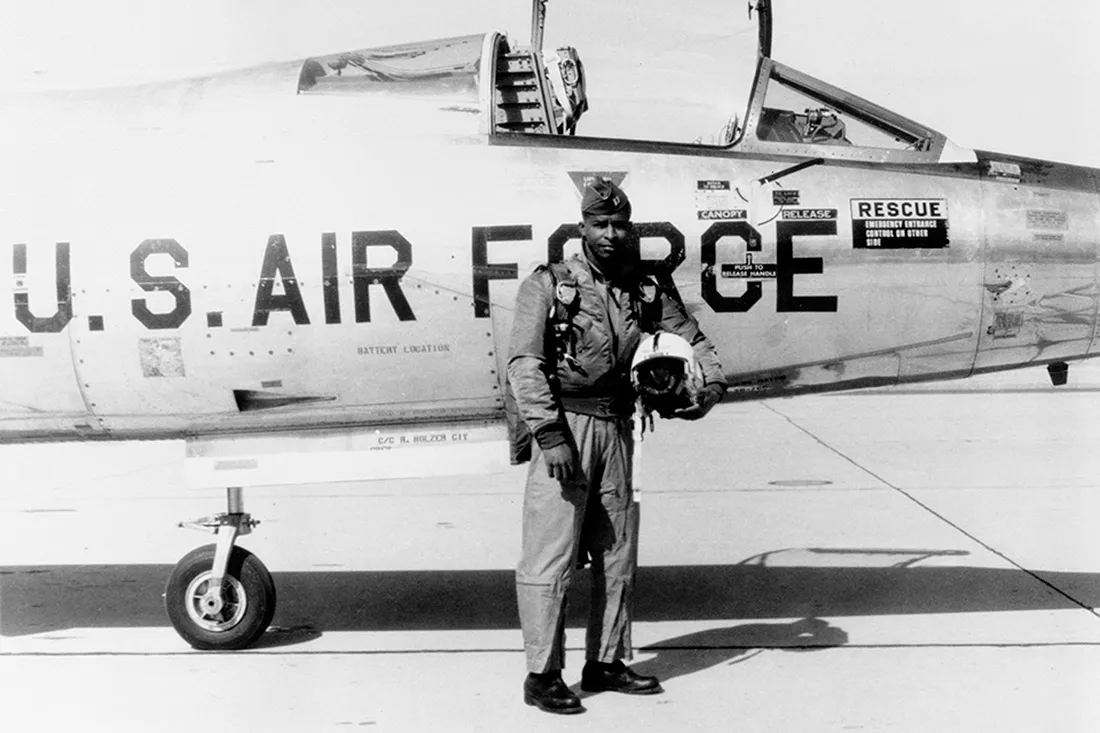In the realm of aviation, the story of Maj. Robert Henry Lawrence, Jr. stands out as a testament to both the triumphs and challenges faced by African Americans in the pursuit of excellence. As the first African American astronaut, Lawrence shattered racial barriers and blazed a trail for future generations in the field of space exploration.
Early Life and Education:
Born on October 2, 1935, in Chicago, Illinois, Robert Henry Lawrence, Jr. exhibited a keen interest in science and aviation from an early age. Despite growing up in an era marked by racial segregation, Lawrence’s passion for flying propelled him to pursue his dreams. He attended Bradley University, where he earned a degree in chemistry, laying the foundation for his future endeavors in the world of aerospace.
Military Career:
Lawrence’s journey to the stars began through his service in the United States Air Force. Commissioned as a second lieutenant, Lawrence excelled as a pilot, earning the rank of captain and later major. His exceptional skills and dedication caught the attention of the military, leading to his selection as an astronaut candidate for the United States Air Force’s Manned Orbiting Laboratory (MOL) program in 1967.
Breaking Barriers as an Astronaut:
Maj. Robert H. Lawrence, Jr.’s selection as an astronaut marked a historic moment for African Americans in the field of space exploration. As part of the MOL program, Lawrence was slated to become the first Black astronaut to travel to space. Unfortunately, fate had other plans, and Lawrence’s promising career was tragically cut short.
Tragic Loss:
On December 8, 1967, tragedy struck during a training flight at Edwards Air Force Base in California. The F-104 Starfighter aircraft piloted by Lawrence crashed, resulting in the untimely death of this pioneering astronaut at the age of 32. The loss was deeply felt by the aerospace community and served as a poignant reminder of the risks inherent in space exploration.
Legacy and Impact:
While Maj. Robert Henry Lawrence, Jr. did not have the opportunity to journey into space, his legacy endures as a symbol of perseverance and courage. In 1972, NASA honored Lawrence posthumously by naming him an astronaut in its Tektite program, a nod to his contributions to space exploration.
The Robert H. Lawrence, Jr. Award, established by the National Society of Black Physicists, further commemorates his legacy by recognizing outstanding achievements by African American physicists. Lawrence’s pioneering spirit and commitment to excellence continue to inspire aspiring astronauts and scientists, underscoring the importance of diversity and inclusion in the aerospace industry.
Conclusion:
Maj. Robert Henry Lawrence, Jr.’s life may have been tragically cut short, but his impact on the field of aviation and space exploration remains enduring. As we reflect on his achievements, we recognize the importance of acknowledging and celebrating the contributions of trailblazers like Lawrence, whose determination and passion have paved the way for a more diverse and inclusive future in the cosmos.






